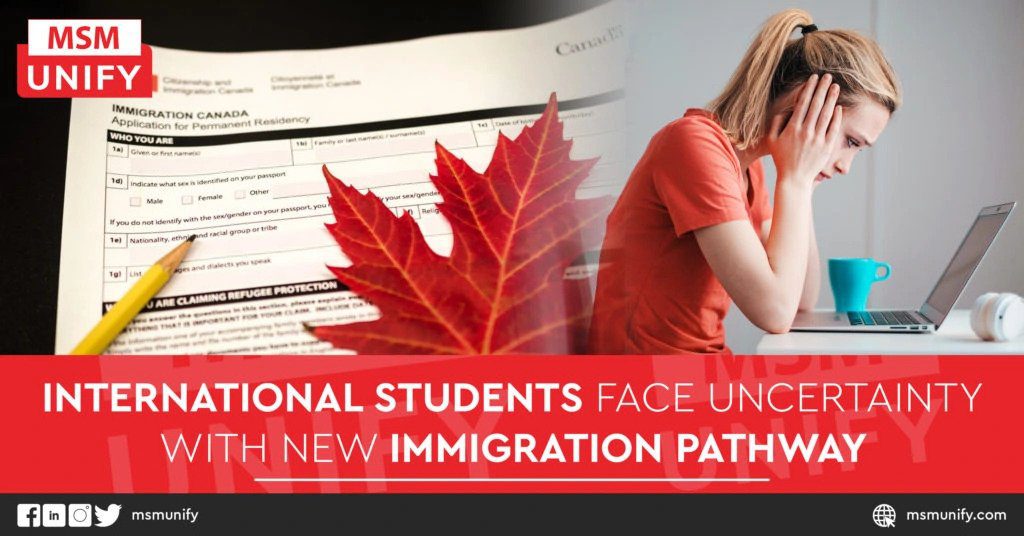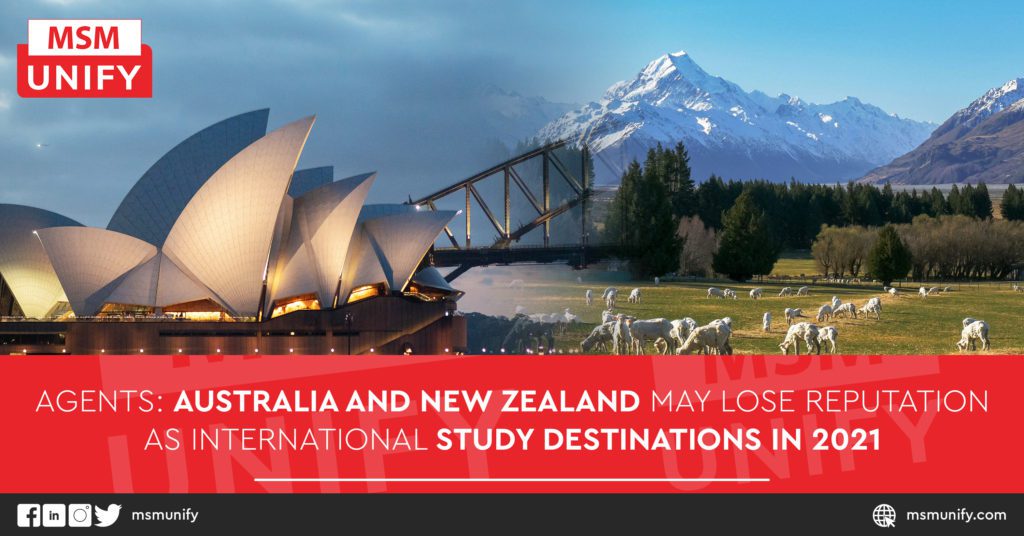Masters in Psychology, Australia: Program highlights
| Program aspect |
Details |
| Program name | Masters in Psychology in Australia |
| Specializations available | Clinical, counseling, forensic, educational, organizational, and health psychology |
| Duration | 1.5 – 3 years, depending on university and program type |
| Tuition fees (annual) | AUD 32,000 – AUD 54,000 approximately |
| Entry requirements | Bachelor’s degree in psychology or related field, English proficiency (IELTS, TOEFL) |
| Study modes | On-campus, online, blended |
| Career opportunities | Clinical psychologist, counseling psychologist, forensic psychologist, researcher |
| Average salary post-graduation | AUD 70,000 – AUD 90,000 approximately per year |
| Relevant programs | Master of psychology, master of clinical psychology, master of counseling psychology, master of forensic psychology |
| Target audience | International students, including students from India and other regions |
| Online availability | Some universities offer online or blended learning options |
| Scholarship opportunities | University-specific, government-funded, need-based, and merit-based scholarships are available |
Introduction
Australia is known for its high-quality education in psychology, offering internationally recognized master’s programs that emphasize both theory and practical application. Pursuing a master’s in psychology in Australia gives students a solid foundation in psychological principles, research methods, and specialized fields, preparing them for various professional roles in healthcare, education, and industry.
With a range of specializations and online options, Australia’s psychology programs cater to students seeking flexibility, global exposure, and professional growth.
To learn more about Masters in Psychology programs in Australia, dive into this insightful guide by MSM Unify.
Why study for a Master’s in Psychology in Australia?
Australia offers several compelling reasons for international students pursuing a psychology degree:
-
World-class education
Australian universities are known for their rigorous training, with a curriculum that integrates scientific knowledge with practical skills.
-
Diverse specializations
Students can focus on areas like clinical, forensic, counseling, or organizational psychology, allowing them to align their studies with their career aspirations.
-
High demand for psychologists
Psychology is a growing field in Australia, with increasing demand across healthcare, educational institutions, and corporate sectors.
-
Flexibility of study
Many universities offer online and blended learning options, enabling students to balance their studies with work or other commitments.
Types of Masters in Psychology programs in Australia
Australian universities provide several types of psychology master’s programs designed to meet varying career paths and educational backgrounds:
-
Master of Clinical Psychology
Prepares students for clinical roles, focusing on mental health assessment, diagnosis, and treatment
-
Master of Counseling Psychology
Emphasizes therapeutic techniques and counseling skills, ideal for those interested in supportive, client-centered careers
-
Master of Forensic Psychology
Specializes in applying psychological principles within legal and criminal justice systems
-
Master of Organizational Psychology
Tailored for students interested in applying psychology in workplace settings to improve productivity, employee well-being, and organizational culture
-
Online and blended options
Several universities offer psychology master’s programs online, making it accessible for international students and working professionals
Master’s in Public Health in Australia
Entry requirements for Masters in Psychology in Australia
To gain entry into a psychology master’s program in Australia, international students typically need to meet the following requirements:
-
Academic qualifications
A bachelor’s degree in psychology or a related field, often with a specific minimum grade point average.
-
English language proficiency
IELTS, TOEFL, or equivalent scores are generally required, with IELTS scores typically ranging between 6.5 and 7.0.
-
Relevant experience
For certain programs, work experience or a research background in psychology may be required.
-
Additional materials
Most universities require a statement of purpose, academic references, and occasionally an interview.
Masters in Management in Australia
Top universities offering a Masters in Psychology in Australia
Australia hosts some of the world’s best universities for psychology, known for their comprehensive programs, research facilities, and strong industry connections. Here’s a look at some top universities for a Master’s in Psychology:
1. University of Melbourne
The University of Melbourne’s psychology program emphasizes both research and clinical training, with specializations in clinical and educational psychology. Known for its research facilities and academic rigor, it is highly ranked globally.
2. University of Sydney
The University of Sydney offers a broad psychology curriculum, with options in clinical, health, and forensic psychology. The program includes hands-on training, preparing students for various professional roles.
3. University of Queensland
Recognized for its strong clinical psychology program, the University of Queensland offers students access to a variety of specializations, including organizational and developmental psychology.
4. Monash University
Monash’s psychology program is known for its flexibility, with options in clinical, counseling, and forensic psychology. The university also offers research opportunities and international collaborations.
5. Australian National University (ANU)
ANU’s psychology program has a strong focus on research, making it ideal for students interested in an academic or research-oriented career. It offers specializations in clinical and cognitive psychology.
6. University of New South Wales (UNSW)
UNSW’s master of psychology program is highly regarded, offering concentrations in clinical and forensic psychology. The program combines academic coursework with practical training.
7. University of Western Australia (UWA)
UWA offers a diverse range of psychology programs, including clinical and industrial-organizational psychology. The university is known for its comprehensive clinical training facilities.
8. Macquarie University
Known for its forensic psychology program, Macquarie provides a strong foundation in both theoretical knowledge and practical experience. It’s an excellent choice for students pursuing careers in legal or forensic settings.
9. Griffith University
Griffith’s psychology program focuses on practical application, particularly in clinical and health psychology. The university has robust partnerships with healthcare institutions, providing ample placement opportunities.
10. University of South Australia (UniSA)
UniSA offers an organizational psychology specialization, with a focus on applying psychology in business environments. The university provides a mix of theoretical learning and practical internships.
Master of Physiotherapy in Australia
Master of Psychology courses in Australia: Program details
Master of psychology programs in Australia include a mix of foundational knowledge, specialized coursework, and hands-on experience. Key elements include:
-
Course duration
Programs generally range from 1.5 to 3 years, with variations based on study mode (full-time or part-time).
-
Core subjects
Courses typically cover foundational topics like cognitive psychology, developmental psychology, research methodology, and psychopathology.
-
Specialization options
Students can choose from various specializations, such as clinical, forensic, health, or organizational psychology, depending on their interests and career goals.
-
Practical training
Programs often include supervised placements or internships in clinical or organizational settings, providing students with real-world experience and skills.
-
Research projects
Many programs require students to complete a research thesis or capstone project, allowing them to explore specific psychology topics in depth and contribute to the field’s academic knowledge.
Master of Psychology fees in Australia
The tuition fees for a Master of Psychology in Australia vary by university and program type. Below is an approximate cost breakdown for some of the top universities:
- University of Melbourne: AUD 45,000 – AUD 52,000 per year
- University of Sydney: AUD 47,000 – AUD 53,000 per year
- University of Queensland: AUD 42,000 – AUD 50,000 per year
- Monash University: AUD 44,000 – AUD 51,000 per year
- Australian National University: AUD 43,000 – AUD 49,000 per year
- University of New South Wales: AUD 48,000 – AUD 54,000 per year
- University of Western Australia: AUD 40,000 – AUD 46,000 per year
- Macquarie University: AUD 39,000 – AUD 45,000 per year
- Griffith University: AUD 37,000 – AUD 43,000 per year
- University of South Australia: AUD 35,000 – AUD 42,000 per year
Please note: Please be aware that fees are estimates that could change. For exact fees, refer to the university’s official website.
Scholarships for Masters in Psychology in Australia
Australia scholarships for international students to help reduce study costs. Key scholarship options include:
-
University-specific scholarships
Many universities offer scholarships based on academic merit, need, or specific criteria. Examples include the Melbourne International Undergraduate Scholarship and the Sydney Scholars Awards.
-
Government scholarships
The Australia Awards and Destination Australia scholarships provide financial support for eligible students. Tuition, living expenses, and return airfare are all covered by these scholarships.
-
External scholarships
Private organizations and foundations, such as Australian Rotary Health, offer scholarships for psychology students.
-
Eligibility criteria
Scholarships often require a strong academic record, and applicants may need to submit additional materials, such as personal statements or letters of recommendation.
Career opportunities after a Masters in Psychology in Australia
A master’s degree in psychology from Australia opens diverse career pathways:
-
Clinical Psychologist
Specializes in diagnosing and treating mental health disorders in hospitals, clinics, or private practices.
-
Counseling Psychologist
Works with individuals and groups to provide therapy and emotional support, often in schools or community organizations.
-
Forensic Psychologist
Applies psychological principles in legal settings, working with law enforcement or correctional facilities.
-
Organizational Psychologist
Helps businesses improve employee productivity, work culture, and mental health in corporate settings.
-
Researcher or academic
Engages in research to advance psychological science, often working in universities or research institutions.
Graduates in psychology earn an average annual salary between AUD 70,000 and AUD 90,000, with potential for growth based on experience and specialization.
Masters in Data Science in the USA
Living costs in Australia for international students
Living costs in Australia vary based on lifestyle and location. An outline of average monthly spending is provided below::
- Accommodation: AUD 800 – AUD 1,500 per month
- Food: AUD 300 – AUD 500 per month
- Public transportation: AUD 100 – AUD 150 per month
- Miscellaneous: AUD 200 – AUD 400 per month
Please note: These estimates may vary depending on lifestyle and city.
How MSM Unify can assist you
MSM Unify overseas education consultant offers support to students pursuing a master’s in psychology in Australia, from program selection to visa assistance and accommodation. MSM Unify’s services make the study abroad journey simpler for international students.
Conclusion
Studying for a Master’s in Psychology in Australia offers international students a quality education, specialized skills, and strong career opportunities. With reputable universities, flexible online options, and various specializations, Australia provides an ideal environment for students passionate about psychology.
By gaining practical experience through placements and internships, graduates are well-prepared to make a positive impact in healthcare, education, and industry.
FAQs
1. What are the entry requirements for a Master’s in Psychology in Australia?
Requirements typically include a Bachelor’s degree in Psychology, English language proficiency, and sometimes relevant experience for a Master’s in Psychology in Australia.
2. Which universities offer a Master’s in Psychology in Australia?
Top universities for a Master’s in Psychology in Australia include the University of Melbourne, the University of Sydney, the University of Queensland, and Monash University.
3. What is the cost of a Master’s in Psychology for international students in Australia?
Tuition fees for a master’s in psychology in Australia range from AUD 32,000 – AUD 54,000 per year, depending on the university.
4. Are there online Master of Psychology programs in Australia?
Yes, some universities offer online and blended learning options for psychology students in Australia.
5. What specializations are available in Psychology in Australia?
Options for a Master’s in Psychology in Australia include Clinical, Forensic, Counseling, Health, and Organizational Psychology.
6. How long does it take to complete a Master’s in Psychology in Australia?
Programs for a Master’s in Psychology in Australia typically last between 1.5 to 3 years, depending on study mode and university.
7. Is Australia a good place for Indian students to study Psychology?
Yes, Australia is known for its quality psychology education and offers a supportive environment for Indian students.
8. Can international students work in Australia after completing a Master’s in Psychology?
Graduates can apply for post-study work visas, providing opportunities to gain work experience in Australia.
9. What is the average salary for psychology graduates in Australia?
Psychology graduates earn between AUD 70,000 and AUD 90,000 per year on average in Australia.
10. What scholarships are available for psychology students in Australia?
Scholarships for psychology students in Australia include university-specific awards, government scholarships, and external funding options.
















